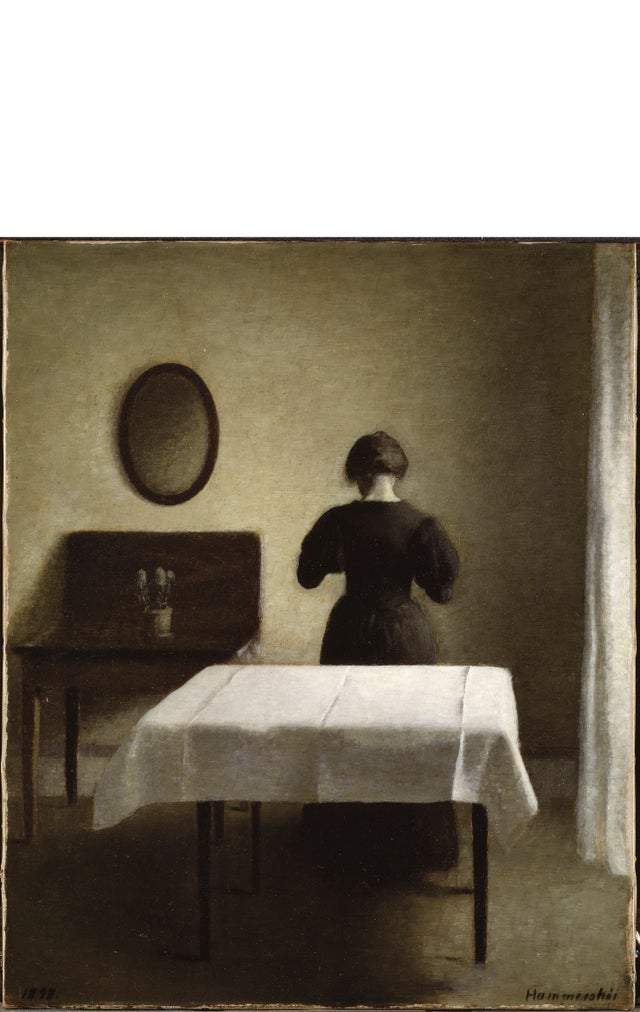- HAMMERSHOI
- >
- READING 2
READING 2
Vilhelm Hammershøi was a celebrated Danish painter known for his meditative interiors and landscapes. Created with a sensitivity to both light and spatial construction, he employed varied mauves, pale yellows, and grays to great effect. “What makes me choose a motif are the lines, what I like to call the architectural content of an image,” he once explained. “And then there's the light, of course. Obviously, that's also very important, but I think it's the lines that have the greatest significance for me.” Born on May 15, 1864 in Copenhagen, Denmark, he studied drawing as a youth before entering the Royal Danish Academy of Fine Arts in 1883. By 1885, his work had taken on the formal and emotional characteristics of both Johannes Vermeer and the earlier Danish painter Christen Købke. Over the following decades, Hammershøi grew a following of artists and intellectuals that included Rainer Marie Rilke and Emil Nolde. Though he spent a number of years traveling through Europe, it was only with the foggy streets of London, that artist developed any longstanding attachment. Successful during his own lifetime, he died on February 13, 1916 in Copenhagen, Denmark. In 2008, the Royal Academy of London put on the first major exhibition of his work in Britain, “Vilhelm Hammershøi: The Poetry of Silence.” Today, the artist’s works are held in the collections of the Metropolitan Museum of Art in New York, the Musée d’Orsay in Paris, the National Gallery in London, and the Ordrupgaard Collection in Charlottenlund, Denmark, among others.


